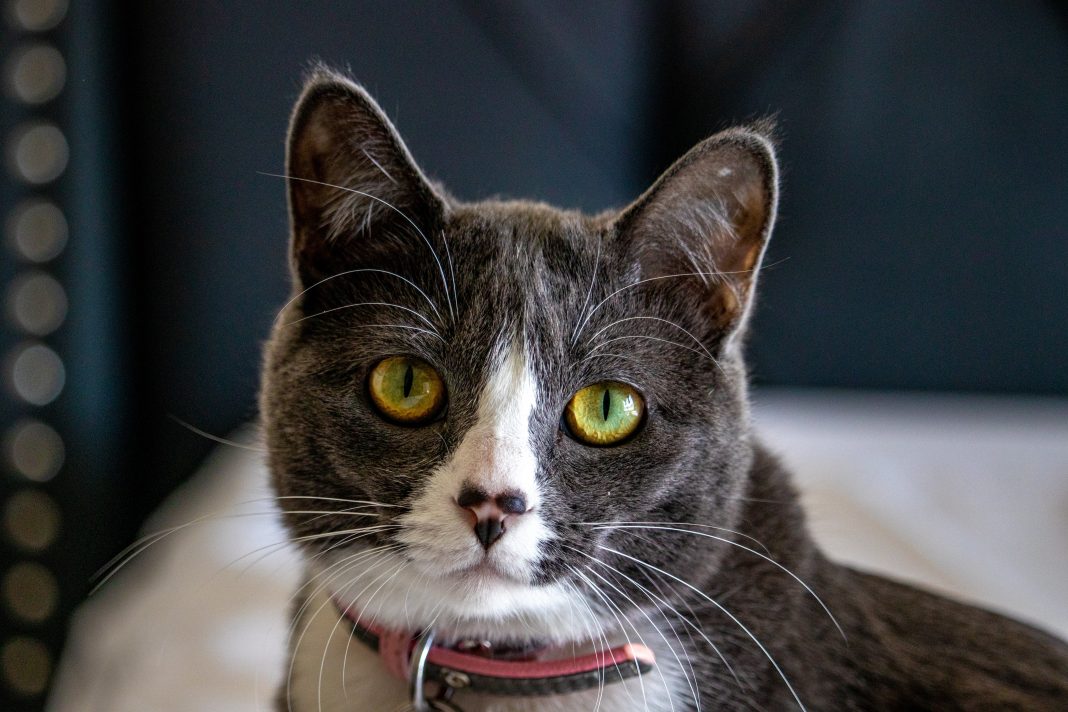Looking for the Best Potassium Supplements for Cats? Ensuring your feline companion receives the right nutrients is crucial for their overall well-being. Potassium is an essential mineral that supports various bodily functions, including nerve function, muscle health, and fluid balance. For some cats, especially those with specific health challenges like kidney disease, additional potassium supplementation might be beneficial. In this article, we’ll explore the top potassium supplements available, helping you choose the perfect one for your furry friend’s needs. Dive in to make an informed decision.
1. RenaCare K is for Renal K (Potassium Gluconate) Potassium Supplement Powder
RenaCare K is a potassium gluconate supplement designed to support normal renal health in dogs and cats. It is a highly palatable powder with a chicken liver flavor that is easy to administer. This supplement is recommended for animals who require extra kidney support and have low potassium levels, as it promotes the absorption of potassium into the bloodstream to rebalance levels and keep pets strong and healthy. RenaCare K is made in the USA.
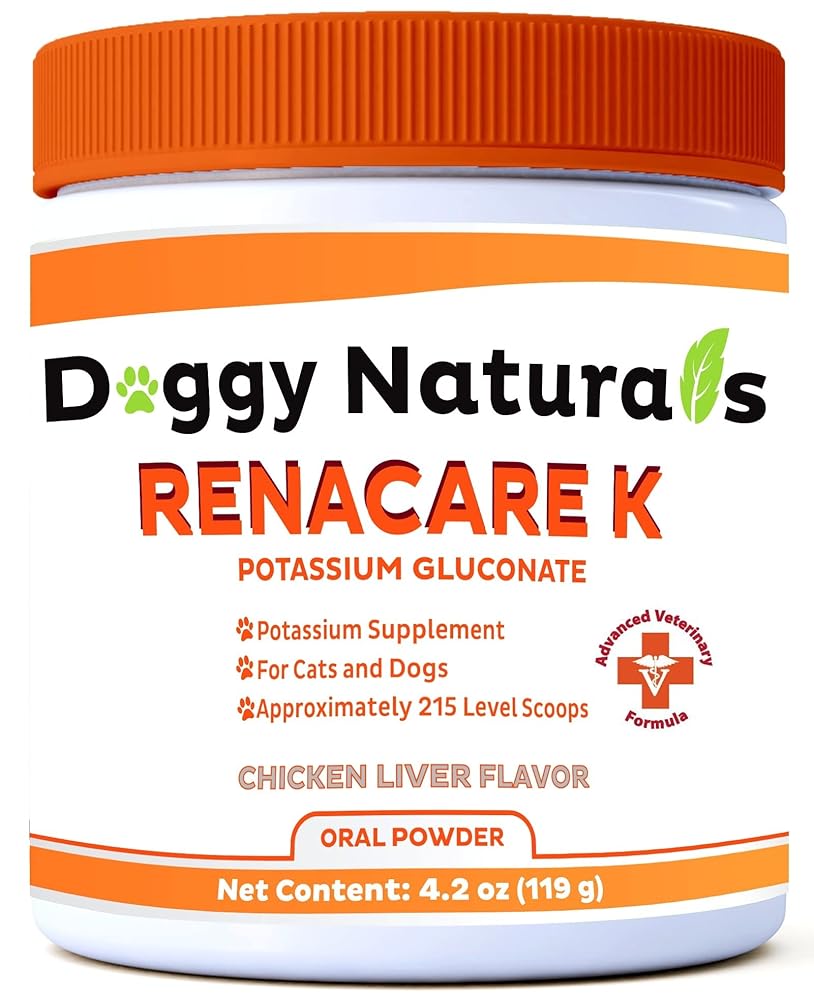
2. K-Plus Potassium Citrate Plus Cranberry Granules for Dogs and Cats
K-Plus Potassium Citrate Plus Cranberry Granules for Dogs and Cats is a veterinarian-approved supplement that supports bladder health and prevents urinary tract infections and bladder stones. It contains a dual-action formula, combining cranberry extract and potassium citrate, to enhance urinary tract health without causing harmful side effects. The palatable granules can be easily mixed with pet food, making administration convenient, and the supplement is safe for regular consumption, made with high-quality ingredients and recommended by veterinarians. It comes in a convenient packaging with precise dosage requirements and is specially formulated to meet the dietary needs of dogs and cats, serving as an effective preventive supplement for urinary tract issues.
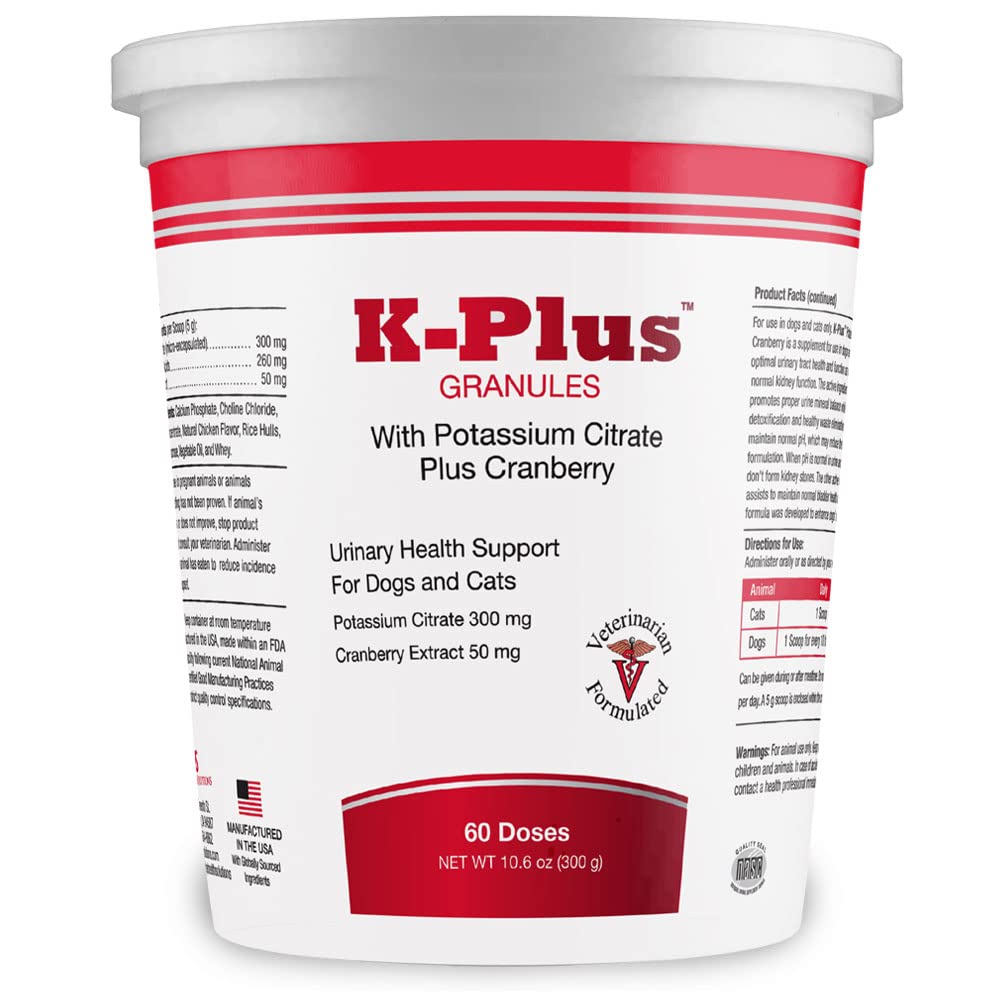
3. Vetoquinol Renal K+ (Potassium Gluconate) Potassium Supplement Gel for Dogs and Cats, 5oz
The Vetoquinol Renal K+ is a potassium supplement gel or powder for dogs and cats. It is designed to support normal renal health and function in pets with potassium deficiencies. The supplement contains essential potassium and B-complex vitamins to help manage potassium levels in pets and is particularly useful for animals in need of kidney support. The product comes in a palatable maple-flavored gel or chicken-and-fish-flavored powder, making it easy to administer to pets.
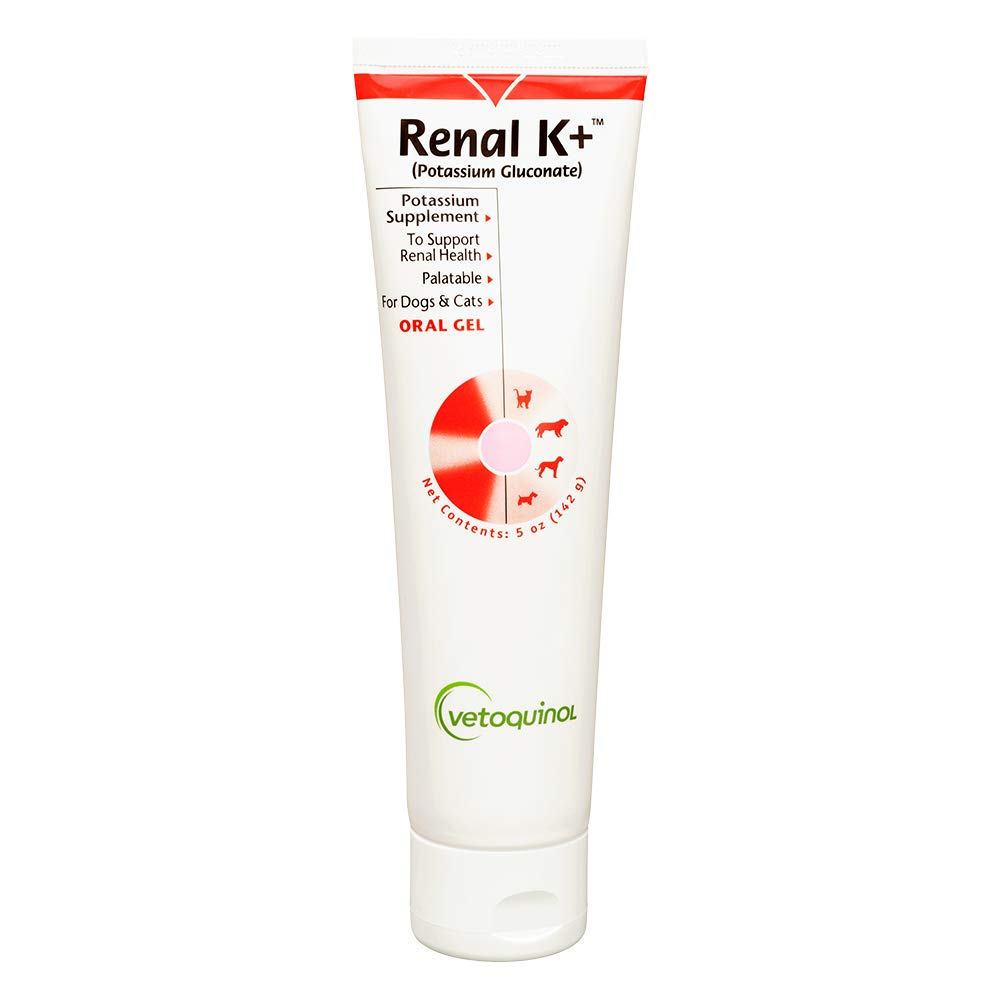
4. Rx Vitamins Amino B+K Supplement for Cats – Extra Potassium & B-Complex Vitamins
Rx Vitamins Amino B+K Supplement for Cats is a liquid supplement designed for cats that require additional potassium. It is hypoallergenic and provides 2mEq of potassium gluconate with each 2 ml dosage. The supplement also contains B-complex vitamins, aqueous liver fractions, and essential amino acids in a highly palatable format, making it easy to administer and provide additional support for cats.
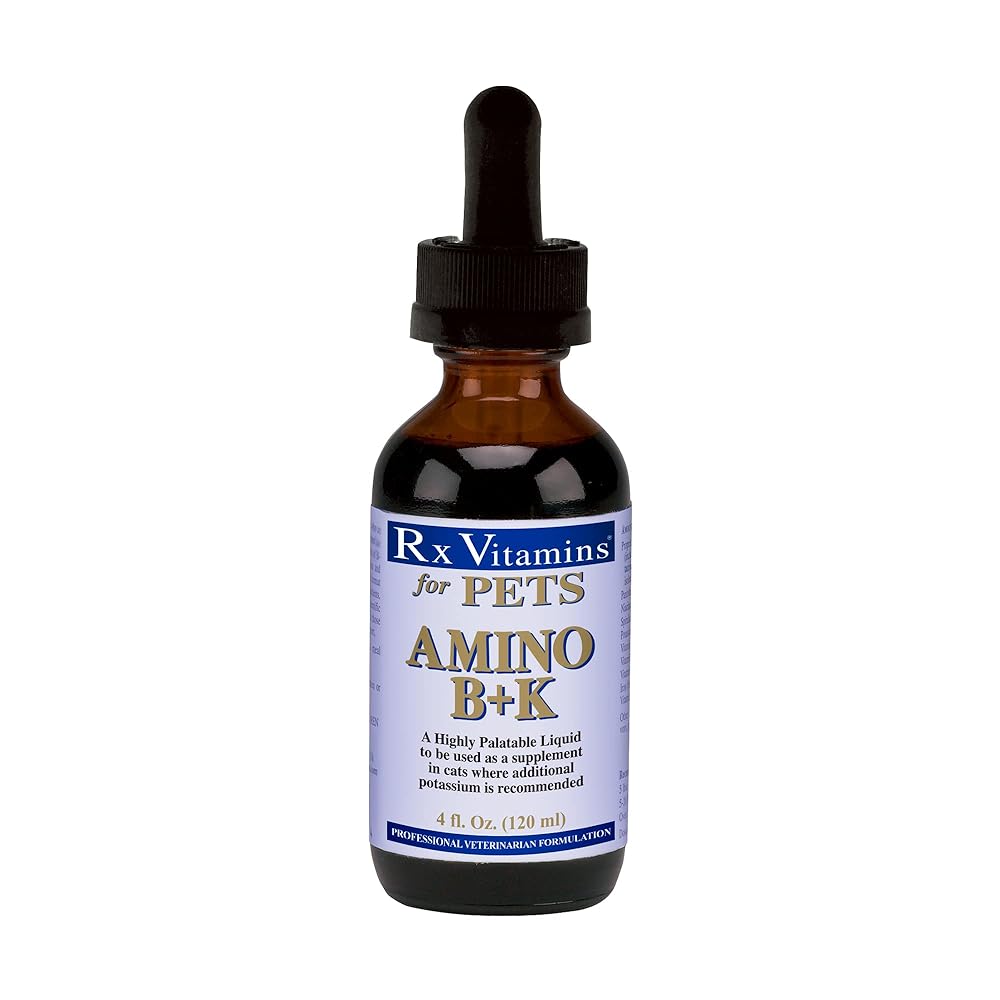
5. K-Plus Potassium Gluconate Renal Gel Plus Cranberry and EPA for Dogs and Cats
The K-Plus Potassium Gluconate Renal Gel is a veterinarian-approved supplement designed to support potassium balance in dogs and cats with kidney disease. The gel contains highly bioavailable potassium gluconate for efficient absorption and is formulated with additional nutrients essential for renal health. It is sugar-free and free of common allergens, making it safe for patients with dietary restrictions or allergies. Extensive testing has shown that the gel is well-tolerated by patients with renal impairment, and its easy-to-administer single-dose applicator improves patient compliance and adherence to treatment.
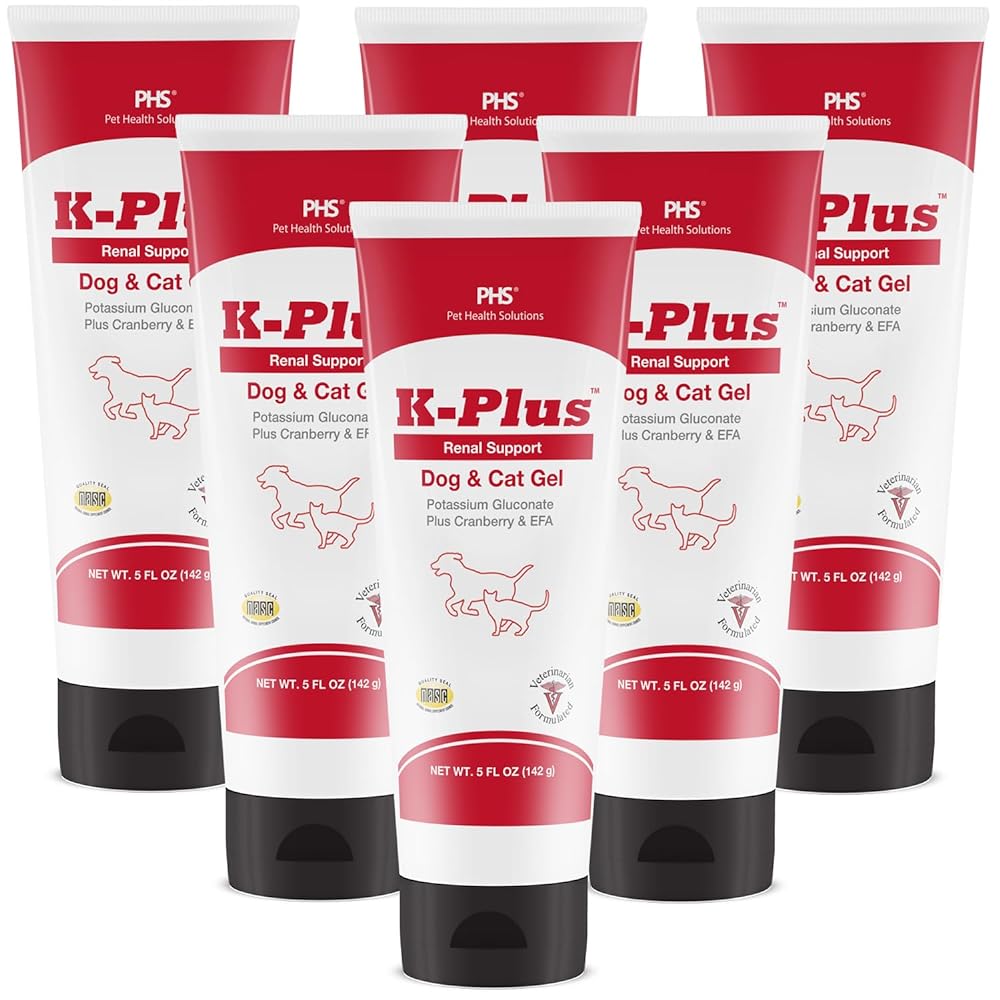
What Are The Benefits of a Potassium Supplement for Cats?
Benefits of a Potassium Supplement for Cats:
- Muscle Health: Potassium is vital for proper muscle function, including the muscles of the heart. A deficiency can lead to generalized muscle weakness or even cardiac complications.
- Nerve Function: This mineral aids in the transmission of nerve impulses. An adequate potassium level ensures that your cat’s nervous system operates efficiently.
- Fluid Balance: Potassium helps regulate the balance of fluids inside and outside of cells, which is crucial for maintaining hydration and cellular function.
- Kidney Health Support: Cats with chronic kidney disease (CKD) often lose excessive amounts of potassium in their urine. This loss can lead to hypokalemia, or low blood potassium levels. Supplementing can help restore this balance and support kidney function.
- Counteracts Metabolic Acidosis: In conditions like CKD, metabolic acidosis can occur, where the body has an excessive amount of acid. Potassium can help counteract this, as certain potassium-based supplements can also help buffer this acidity.
- Prevention of Hypokalemia: Hypokalemia, or low blood potassium, can cause various symptoms in cats, including muscle wasting, neck ventroflexion (head hanging), and overall lethargy. Providing a potassium supplement can help prevent or treat this condition.
Frequently Asked Questions About Potassium Supplements for Cats
1. Why is potassium important for cats?
Potassium is an essential mineral that supports various physiological processes in cats, including muscle function, nerve impulse transmission, fluid balance, and overall cellular activity. A proper potassium level ensures your cat’s health and well-being.
2. What are signs of potassium deficiency in cats?
Symptoms of potassium deficiency, or hypokalemia, include muscle weakness, neck ventroflexion (head hanging), lethargy, and in severe cases, cardiac complications. It’s essential to diagnose and treat potassium deficiencies promptly.
3. Can too much potassium be harmful to my cat?
Yes, excessive potassium, or hyperkalemia, can be dangerous. It can lead to cardiac issues and muscle weakness. Always ensure the correct dosage and consult with your veterinarian.
4. How do I know if my cat needs a potassium supplement?
A veterinarian can assess your cat’s potassium levels through blood tests. Cats with conditions like chronic kidney disease or those showing signs of hypokalemia might benefit from supplementation.
5. Can I give human potassium supplements to my cat?
No, human supplements might not be suitable for cats due to differences in dosage and additional ingredients. Always use products specifically designed for felines.
6. How are potassium supplements administered to cats?
Potassium supplements for cats are available in various forms, including powders, gels, and tablets. Typically, they can be mixed with food to ensure easy consumption.
7. Are there any side effects of potassium supplements?
While side effects are uncommon when given in the appropriate dosage, excessive potassium can cause symptoms like muscle weakness, heart arrhythmias, and lethargy. Always monitor your cat after introducing any supplement.
8. How often should I give my cat potassium supplements?
The frequency of supplementation depends on your cat’s specific needs and the product’s recommendations. Always follow your veterinarian’s advice for dosing.
9. Can potassium supplements interact with other medications?
There’s potential for interaction, especially with medications that affect kidney function or electrolyte balance. It’s crucial to inform your vet about all medications and supplements your cat is taking.
10. Is dietary change a substitute for potassium supplements?
While some foods are high in potassium, relying solely on diet might not provide the necessary levels for cats with significant deficiencies. It’s often beneficial to combine dietary adjustments with supplementation, under a vet’s guidance.
Final Summary: The Best Potassium Supplements for Cats
In this article, we reviewed the Best Potassium Supplements for Cats. Ensuring your cat has the right amount of potassium is vital for their health and well-being. With the right supplement, you can address any deficiencies and support their overall bodily functions. Always consult with your veterinarian before introducing any new supplements to ensure they’re appropriate for your pet’s unique needs. Remember, the health of your feline friend is paramount, and with the right care and attention, they can thrive.

